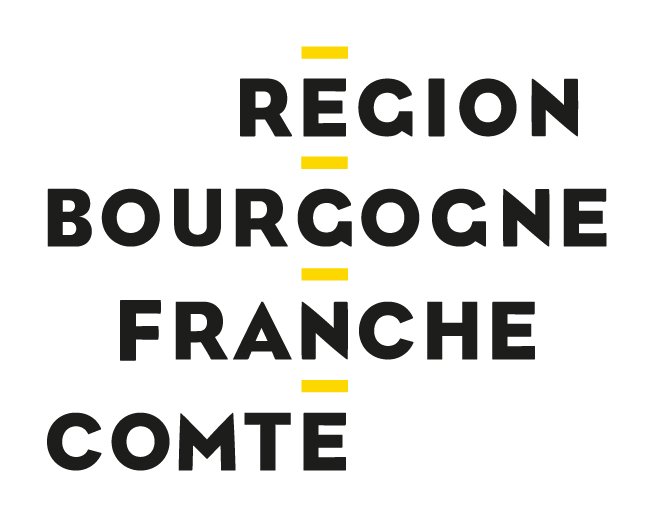09 Feb 2022
Vitawatch: your agrifood intelligence round-up for February

Throughout the world, researchers working on nutrition-health, food formulation, sustainable agriculture or consumer behaviours are providing us with exciting new advancements in scientific knowledge.
In this Vitawatch bulletin, find out more about the composition of our gut microbiota and the health benefits of xanthohumol, the effect of coffee on Alzheimer’s, the first “lab grown” coffee, the rise of flexitarianism in Europe, consumers’ willingness to pay for meat compared to plant-based products, or indeed the (reversible) decline of biodiversity following 100 years of upheaval.
Food and health
Is a specific microbiota needed to obtain benefits from xanthohumol?
Xanthohumol, a flavonoid found in hops, has antioxidant, anti-inflammatory, antihyperglycemic and antihyperlipidaemic properties. It is also known to have a prebiotic effect on gut microbiota.
A team of scientists at Oregon State University and Carlson College of Veterinary Medicine in the USA have sought to determine if this flavonoid requires a specific composition of the gut flora to access its health benefits. The experiment used mice with conventional gut microbiota and mice designed to be germ-free.
“There is an important interaction between the compound and the microbes in the gut that provides the benefits we see in our studies with mice. We found that only the conventional mice with xanthohumol supplementation showed improved glucose metabolism and that xanthohumol increased the relative abundance of three bacteria, Akkermansia muciniphila, Parabacteroides goldsteinii and Alistipes finegoldii,” said Adrian Gombart, professor of biochemistry and biophysics in the Oregan State University College of Science and a principal investigator at the university’s Linus Pauling Institute. The three bacteria cited appear to be at least partly responsible for the health benefits associated with xanthohumol.
Source: Molecular nutrition & Food research
Can coffee limit the effects of Alzheimer’s disease?
A study recently published in Frontiers in Aging Neurosciences, suggests that regular consumption of coffee could help to limit cognitive decline associated with Alzheimer’s disease.
This 10 year study, carried out in Australia on a cohort of 227 patients, has shown that drinking two cups of coffee per day could reduce cognitive decline by 8% after a period of 18 months.
The accumulation of amyloid, one of the proteins responsible for Alzheimer’s, is shown to have been slowed. Its toxicity also appears to be limited by the consumption of coffee. Additional studies could confirm what excipients found in coffee are responsible for this effect.
Source: Eurekalert
Formulation / process
Finnish scientists create a “sustainable” lab-grown coffee.
A team of researchers from the Finnish institute VTT have developed a coffee produced in a laboratory. The coffee is grown from a group of coffee plant cells, in a bioreactor with tightly controlled conditions, including temperature, light and oxygen. Once torrified, the powder can be infused in the same way as conventional coffee.
According to the research team, this coffee could be on supermarket shelves within four years, once the necessary regulagory approvals have been obtained.
While additional studies are needed to prove the sustainability of the product, “we know already that our water footprint, for example, is much less than what is needed for field growth,” says Heiko Rische, the project leader.
Source: RFI
Consumer behaviours
Flexitarians, an opportunity for European food businesses
According to a survey of 7500 people across 10 European countries, consumers are more and more interested in plant-based products.
This survey was carried out by the NGO ProVeg International for the Smart Protein project, in partnership with Innova Market Insights and the Universities of Copenhagen and Gand. The results indicate that 7% of those questioned follow a vegetarian diet, and 30% follow a flexitarian diet. The survey also reveals that 40% of European consumers intend to reduce their meat consumption in the future. In addition, 30% of European consumers intend to reduce their consumption of dairy products.
Among the flexitarians, 73% declared that they have “considerably” reduced their meat consumption in recent months. 45% of them declared that they would like to have more vegetarian options in restaurants and in retail, and 50% think that prices are currently too high.
“The survey indicates that there is tremendous potential for plant-based foods in Europe and gives a green light to all relevant players in the field to develop more and better products. Consumer demand for alternative proteins is growing at a remarkable rate, with no end in sight.” Jasmijn de Boo, Vice President of ProVeg International. It also worth noting, on a global scale, that a Euromonitor report revealed that 4 out of 10 consumers now say they are flexitarian.
Source: SmartProteinProject
Health claims, immunity boosting and the pandemic
Driven by the Covid-19 pandemic, consumer interest in foods and drinks with immune-stimulating effect has been constantly increasing for several years. A third of consumers declare that they regularly consume this type of product. In parallel, product launches highlighting immune-boosting properties increased by 18% over the 12 months following the beginning of the pandemic, compared to the previous 12 months.
This trend is expected to grow, in particular regarding the number of research projects and regulatory changes currently underway.
According to Innova Market Insights, the most successful products are those in favour of brain health and mental stimulation, providing openings for a number of potential innovations in the area of personalised nutrition.
Source: FoodNavigator
Willingness to pay and the future of meat consumption
In a recent article published in Viandes et Produits carnés, the researcher Stéphane Marette reviewed two surveys evaluating the willingness to pay (WTO) of French consumers regarding animal and plant-based products, as well as their perceptions of meat consumption.
The results of the first survey showed that the WTO for plant-based products was lower than that of meat products, but information on the impact of these products on human health and the environment could reduce the gap. In addition, the WTO for meat carrying the “Label Rouge” (premium label) was higher than for meat with no label.
According to the results of these two surveys, consumer interest in plant-based meat alternatives is increasing on the condition that price differences are minimal. However, meat will continue to hold on to a significant market share depending on the evolution of prices and information provided to consumers. In the case of a sharp increase in meat prices, beef producers could turn to labels of quality for which the WTO is higher.
Source: ViandesEtProduitsCarnes.com
Sustainable agriculture
“Crop diversity underpins food security”: biodiversity loss is “enormous” but remains “reversible”
An international team of scientists has published the results of what may be the largest ever study of the diversity of agricultural crops.
Published in New Physiologist, the study reveals that combined economic, technological, climatic and political changes over the last 100 years have led to the destruction of genetic diversity that is essential for agriculture. Also, the remaining diversity could still be threatened with extinction as the genetic diversity of crops becomes more and more homogenous on a global scale.
Luigi Guarino, scientific director of Crop Trust (Germany) and author of the study, underlines the importance of preserving and reinforcing crop diversity collections such as agricultural genebanks and botanic gardens, as insurance against loss and a tool for reestablishing diversity.
The “good news” despite huge biodiversity losses, according to Stephen Brush, a second author of the study and scientist at the agricultural development centre at UC Davis (USA), is that in certain contexts biodiversity has been maintained or even increased. The diversity of traditional crops remains high in farms and gardens where there is an appreciation for their agricultural and social importance.
Source: FoodNavigator




 Home
Home
















Share your opinion